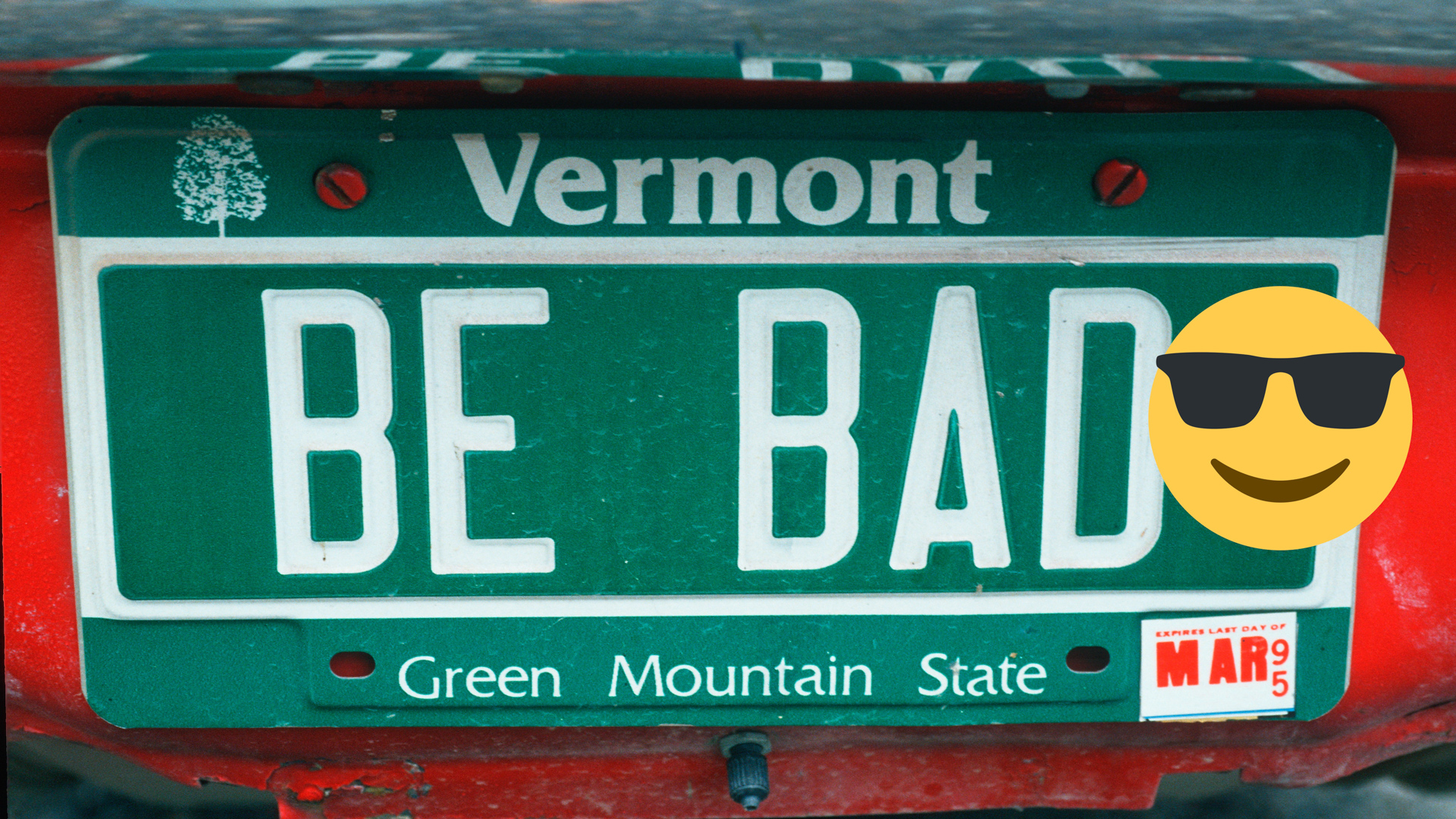

A proposed bill in Vermont’s state legislature would open the door for vehicle owners to add emojis to their personalized license plates. The state’s signature green plates have typically been locked down to letters or numbers and the occasional, very tame vanity plate message.
The bill still has to pass through the legislation process, but if it passes the vote, Vermont drivers will be able to add one of six approved emojis to their license plates. The symbols won’t replace any of the letters or numbers that typically appear on plates; instead, they’ll be added to the standard digits as a kind of extra decoration. The legislation doesn’t specify which symbols will be allowed, but there are currently over 3,000 different recognized emojis across various platforms.
If passed, the move would make Vermont the first state to allow such customization, but they won’t be the first to do so worldwide. Lawmakers in Queensland, Australia passed a bill last year to allow emoticons to appear on license plates. Drivers there can select from laughing, smiling, wink, love, or sunglasses emojis. Those plates cost about $336, but there’s no word on how much Vermont’s would set drivers back.
The state’s current vanity plate application lists all sorts of restrictions on what can and can’t be included on a custom plate, from a rule stating the letter “Z” cannot be the first letter on the plate to a ban on language that is “vulgar, scatalogical, or obscene.” Vermont also denied any attempt to skirt the rules by spelling out dirty words with a combination of numbers and letters.
Anything that constitutes racial slurs or ethnic epithets is reasonably banned.
Vermont’s move to allow emojis is newsworthy for sure, but smiley faces on plates pales in comparison to the vanity plates seen in the state’s New England sibling, Maine. There, laws were passed to allow almost anything on a license plate, so long as it’s not a racial slur or clearly discriminatory. The move there came a few years ago, after a breast cancer survivor was denied permission to get “BQQBS” on one of Maine’s breast cancer awareness plates, which started a conversation on whether or not censoring license plates was constitutional.
Got a tip? Send us a note: tips@thedrive.com
h/t: WMUR